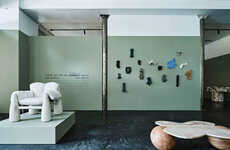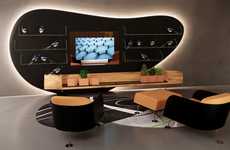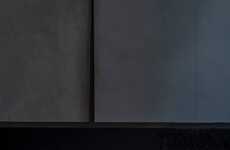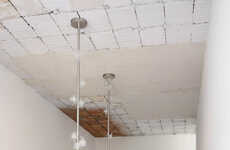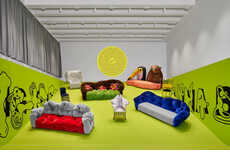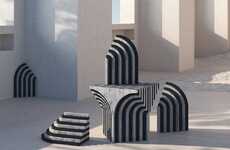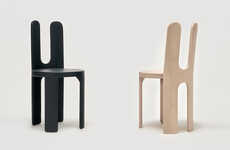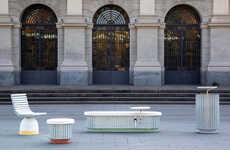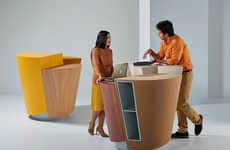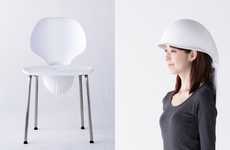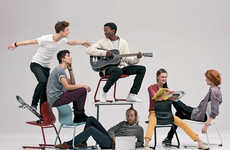
The 'Get Lost' Project Shows at Milan's Ventura Lambrate
Vasiliki Marapas — May 15, 2014 — Art & Design
References: venturaprojects & dezeen
Shown as part of the Ventura Lambrate in Milan, 'Get Lost' is the first project by Brazilian designers Tiago Volpato and Gabriel F. The duo, who recently graduated from Brazil's Federal University of Parana, were inspired by designers who "feel lost" within the industry.
The duo broke down the vast, hard-to-describe feeling into several categories. Volpato explains, "We concluded there are four main reasons to feeling lost, and designed a product for each one of them; inadequacy, discomfort, aimlessness and nostalgia." For example, a rocking chair is meant to represent discomfort at the fluctuating nature of the industry. A lamp hangs awkwardly from the chair's frame, acting as a disruptive force if you're trying to read or work. Another piece, a eucalyptus coffee table, spins in circles in an attempt to articulate feelings of aimlessness and misdirection.
Overall, the self-referential line features innovative, abstract pieces that speak to feeling adrift, disoriented or simply misplaced.
The duo broke down the vast, hard-to-describe feeling into several categories. Volpato explains, "We concluded there are four main reasons to feeling lost, and designed a product for each one of them; inadequacy, discomfort, aimlessness and nostalgia." For example, a rocking chair is meant to represent discomfort at the fluctuating nature of the industry. A lamp hangs awkwardly from the chair's frame, acting as a disruptive force if you're trying to read or work. Another piece, a eucalyptus coffee table, spins in circles in an attempt to articulate feelings of aimlessness and misdirection.
Overall, the self-referential line features innovative, abstract pieces that speak to feeling adrift, disoriented or simply misplaced.
Trend Themes
1. Abstract Furniture - Design innovative, abstract furniture pieces that evoke a sense of disorientation and misplacement.
2. Self-referential Design - Create furniture designs that reflect and embody the feeling of being lost or adrift within the industry.
3. Disruptive Forces in Furniture - Incorporate disruptive elements into furniture designs to challenge traditional functionality and create unique experiences.
Industry Implications
1. Furniture Manufacturing - Explore disruptive innovation opportunities by designing and producing abstract furniture pieces that embody the feeling of being lost and adrift.
2. Interior Design - Embrace the trend of self-referential design by incorporating abstract furniture pieces that evoke a sense of disorientation and misplacement in interior spaces.
3. Product Design - Leverage the concept of disruptive forces in furniture to create unique and innovative product designs that challenge traditional functionality and appeal to consumers seeking unconventional experiences.
2.8
Score
Popularity
Activity
Freshness

